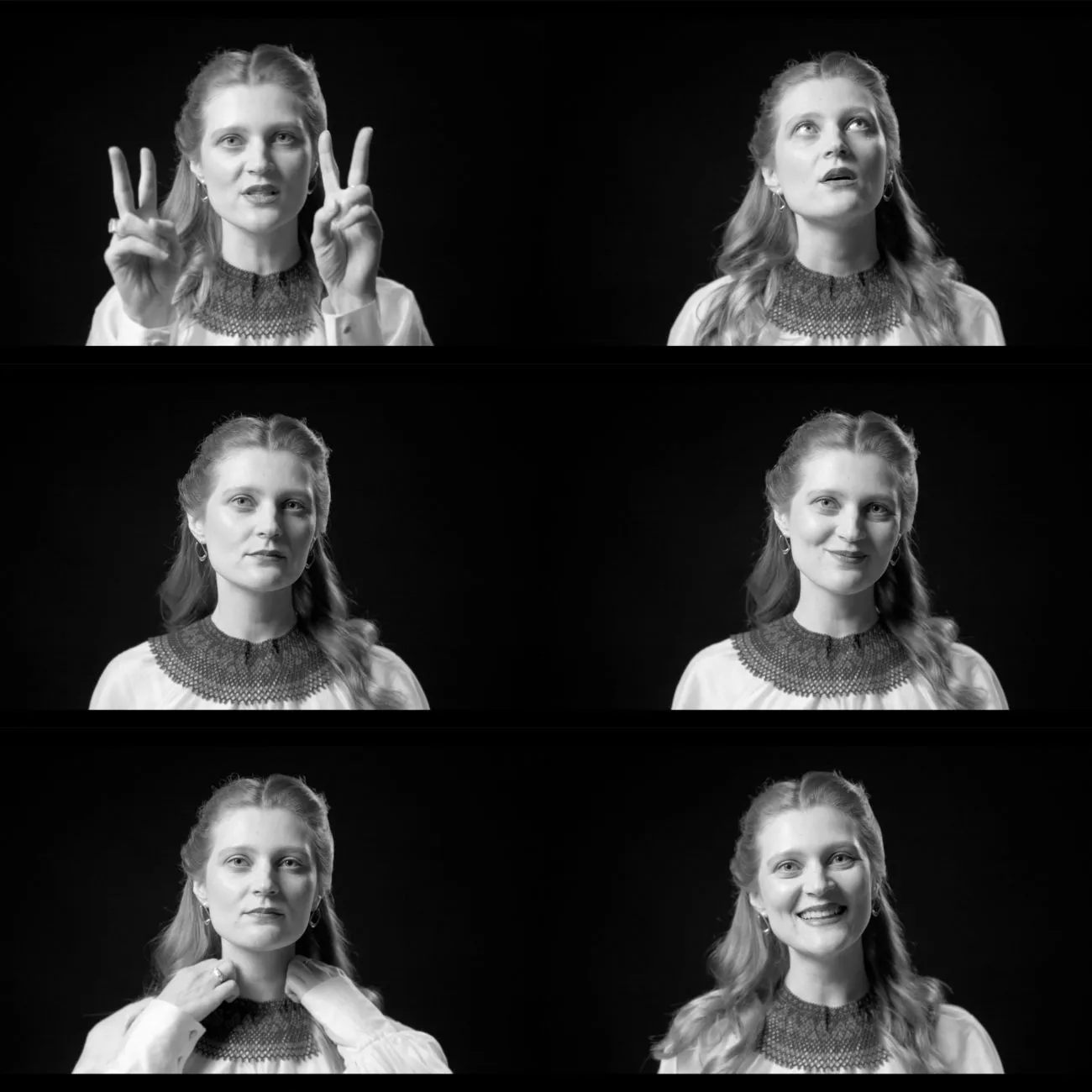Zhenia Berezhna
Writer, author of the book "[Not] About War", refugee from Ukraine

When I was little, I would see refugees from the Democratic Republic of the Congo in Kyiv. At the time I thought that they had ended up in this situation because they had been living somewhere very far away, probably in some kind of mud huts. Back then I had no idea that war doesn’t discriminate between people. It doesn’t matter where you live, what your social status is, how much money you make, how intelligent you are, what your educational background is: when war comes, it comes for everyone.
Speaking in fairytale terms: it felt like I had gone for a walk in an enchanted forest, fallen asleep, and then been awakened to a reality that was no longer my own. It sounds marvelous, but in fact it’s anything but. You lose all your bearings all at once. There are things without which a normal life is impossible. When you live in one place for a long time, you have your favorite spots that act as anchors when you’re sad, need to gather your strength, or just want to take your friends out to your favorite restaurant. Then, suddenly, it’s all gone and you’re in a completely new world.
The break is not only physical, but also emotional. Physically, you can return home. I can visit Ukraine and bring my German family along with me. I hope it will happen one day. But I don’t know how to make these two parts of my life fit together. It’s literally two different lives, and between them lies a giant black line that I’m not able to cross. I often miss my past self — and the past experiences I can rely on.
If a piece of you is cut off, it won’t grow back. You’ll always feel that something is missing. It will always make you feel lonely, cold, scared. If anything — from loud noises on the street to a movie — can theoretically retraumatize you, then it’s bound to happen. To this day, I have thoughts like, "it’s not worth buying too much furniture for the new apartment or too many clothes because what if we suddenly have to flee and leave everything behind?"
I will always be Ukrainian and I don’t want to be anything else. I want my German family to know that I’m Ukrainian, and my kids, if I have any here, to know that their mom is Ukrainian. I don’t feel conflicted about it. I think it’s normal to come to a new country, integrate, but remain who you were before.
At the same time, I am a Russian-speaking Ukrainian and I insist on this: I have the right to speak Russian, I will continue to write in Russian, whether you like it or not. You can choose to not support me, for example, by not reading or buying my books. But you can’t take away my passport or forbid me from calling myself Ukrainian.
There’s a huge part of the population of Ukraine that speaks Russian. Yes, many now refuse to use Russian — I understand and even support them. If my friends ask me to speak Ukrainian with them, no problem. But I’ll decide for myself which language to write in, because it’s about my life now, about my survival, and no one will help me if I don’t help myself.
When someone is in danger and feels helpless, he needs to find an understandable and concrete perpetrator that can be dehumanized and debased. Then you have something to dump your emotions onto. This is normal when you’re huddled in a basement getting shelled. Under fire, you tell yourself "The Russian soldiers who came into my home aren’t human". You won’t be able to survive if you think about the fact that they actually also have families or that they were sent here. The same thing happens on the frontlines.
Refugees who arrive here in Germany are also confronted with this feeling of helplessness. So they construct for themselves a nominal enemy — for example, the Russian language. It’s quite convenient because the Russian language can’t talk back. After all, it’s just a language, an instrument.
I hear a lot of cognitive distortions: "You’re speaking the language of the occupiers", "It’s because of you speaking Russian that Putin still hasn’t lost". I understand how farfetched it all sounds. But people think that way because it helps them survive and release difficult emotions. It’s easier than telling yourself that the world is very complex or asking yourself questions like "What is language, anyway?" or "How should I treat Ukrainians from Russian-speaking regions?" I think people just don’t have the energy for that. They come here to find work, shelter, raise their children, learn a new language.
I believe that we can find a balance by continuing to follow events, not turning away, not closing off our hearts and our thoughts while also building our own lives here or in another country. I wanted to demonstrate this using myself as an example, so that people would empathize and understand that there’s nothing reprehensible about it.
As a writer, I have a lot of possibilities. My situation is more fortunate than that of other refugees: I have the strength and the opportunity to reflect. If I can do that, it means that I must, because not everyone can afford to. People are often simply overwhelmed emotionally. They have no more time or strength left. That means that it is up to the writers, artists and playwrights to do so — their work provides space for this kind of reflection.